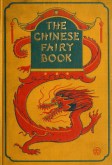How Greed for a Trifling Thing Led a Man to Lose a Great One
Chinese Folktale
Once upon a time there was an old woman, who had two sons. But her older son did not love his parents, and left his mother and brother. The younger one served her so faithfully, however, that all the people spoke of his filial affection.
One day it happened that there was a theatrical performance given outside the village. The younger son started to carry his mother there on his back, so that she might look on. But there was a ravine before the village, and he slipped and fell down in the middle of it. And his mother was killed by the rolling stones, and her blood and flesh were sprinkled about everywhere. The son stroked his mother’s corpse, and wept bitterly. He was about to kill himself when, suddenly, he saw a priest standing before him.
The latter said: “Have no fear, for I can bring your mother back to life again!” And as he said so, he stooped, gathered up her flesh and bones, and laid them together as they should be. Then he breathed upon them, and at once the mother was alive again. This made the son very happy, and he thanked the priest on his knees. Yet on a sharp point of rock he still saw a bit of his mother’s flesh hanging, a bit about an inch long.
“That should not be left hanging there either,” said he, and hid it in his breast.
“In truth, you love your mother as a son should,” said the priest. Then he bade the son give him the bit of flesh, kneaded a manikin out of it, breathed upon it, and in a minute there it stood, a really fine-looking little boy.
“His name is Small Profit,” said he, turning to the son, “and you may call him brother. You are poor and have not the wherewithal with which to nourish your mother. If you need something, Small Profit can get it for you.”
The son thanked him once more, then took his mother on his back again, and his new little brother by the hand, and went home. And when he said to Small Profit: “Bring meat and wine!” then meat and wine were at hand at once, and steaming rice was already cooking in the pot. And when he said to Small Profit: “Bring money and cloth!” then his purse filled itself with money, and the chests were heaped up with cloth to the brim. Whatever he asked for that he received. Thus, in the course of time, they came to be very well off indeed.
But his older brother envied him greatly. And when there was another theatrical performance in the village, he took his mother on his back—by force—and went to it. And when he reached the ravine, he slipped purposely, and let his mother fall into the depths, only intent to see that she really was shattered into fragments. And sure enough his mother had such a bad fall that her limbs and trunk were strewn around in all directions. He then climbed down, took his mother’s head in his hands, and pretended to weep.
And at once the priest was on hand again, and said: “I can wake the dead to life again, and surround white bones with flesh and blood!”
Then he did as he had done before, and the mother came to life again. But the older brother already had hidden one of her ribs on purpose. He now pulled it out and said to the priest: “Here is a bone left. What shall I do with it?”
The priest took the bone, enclosed it in lime and earth, breathed upon it, as he had done the other time, and it became a little man, resembling Small Profit, but larger in stature.
“His name is Great Duty,” he told his older brother, “if you stick to him he will always lend you a hand.”
The son took his mother back again, and Great Duty walked beside him.
When he came to their courtyard door, he saw his younger brother coming out, holding Small Profit in his arms.
“Where are you going?” he said to him.
His brother answered: “Small Profit is a divine being, who does not wish to dwell for all time among men. He wants to fly back to the heavens, and so I am escorting him.”
“Give Small Profit to me! Don’t let him get away!” cried the older brother.
Yet, before he had ended his speech, Small Profit was rising in the air. The older brother then quickly let his mother drop on the ground, and stretched out his hand to catch Small Profit. But he did not succeed, and now Great Duty, too, rose from the ground, took Small Profit’s hand, and together they ascended to the clouds and disappeared.
Then the older brother stamped on the ground, and said with a sigh: “Alas, I have lost my Great Duty because I was too greedy for that Small Profit!”
Note: In China—usually on festive days or because of some religious celebration—a provisional stage is erected before the village or temple, and a play given. Permanent theaters are to be found only in the large cities.
The Chinese Fairy Book

Notes: The Chinese Fairy Book contains 74 Chinese folktales, sorted into several categories.
Author: Various
Editor: Dr. R. Wilhelm
Published: 1921
Publisher: Frederick A. Stokes Company, New York